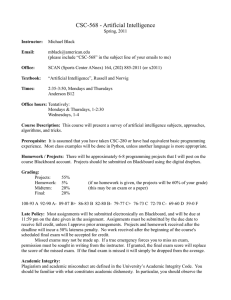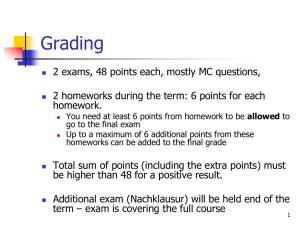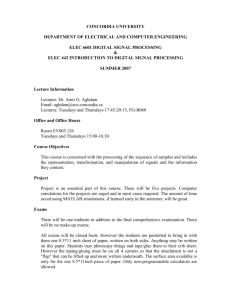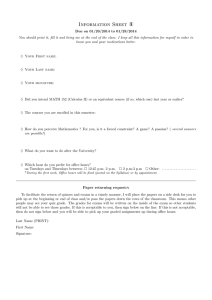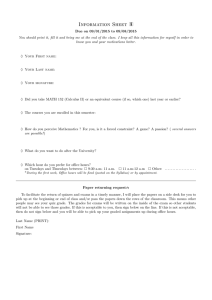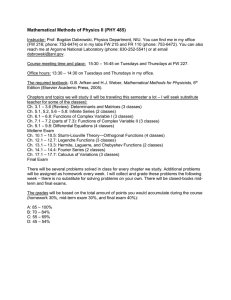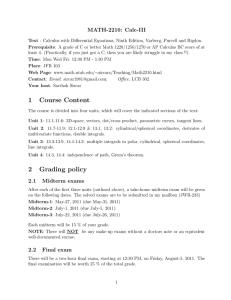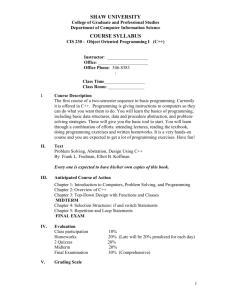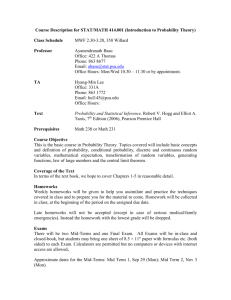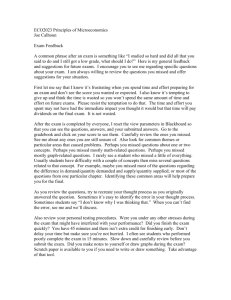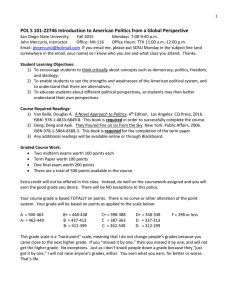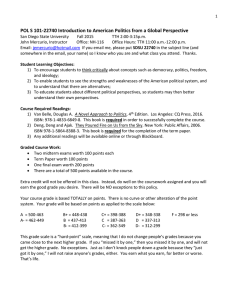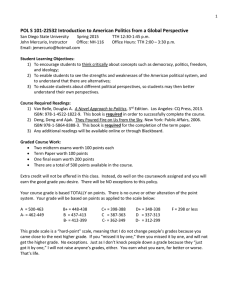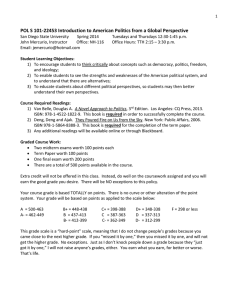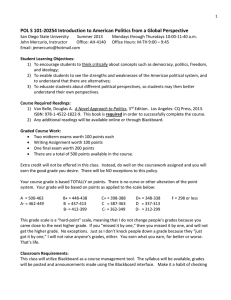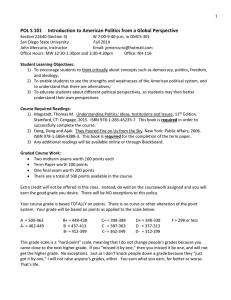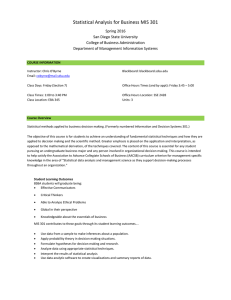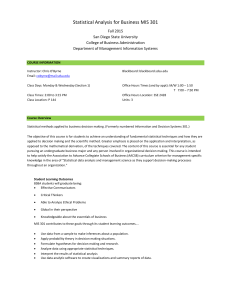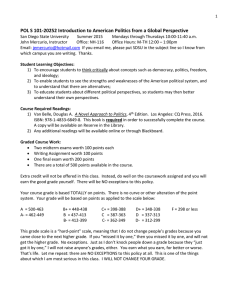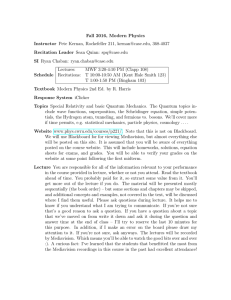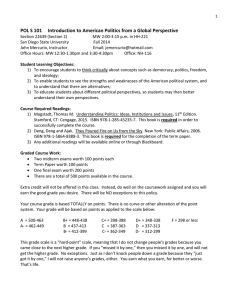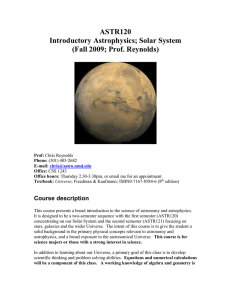CSC-546 - Introduction to Computer Networks
advertisement
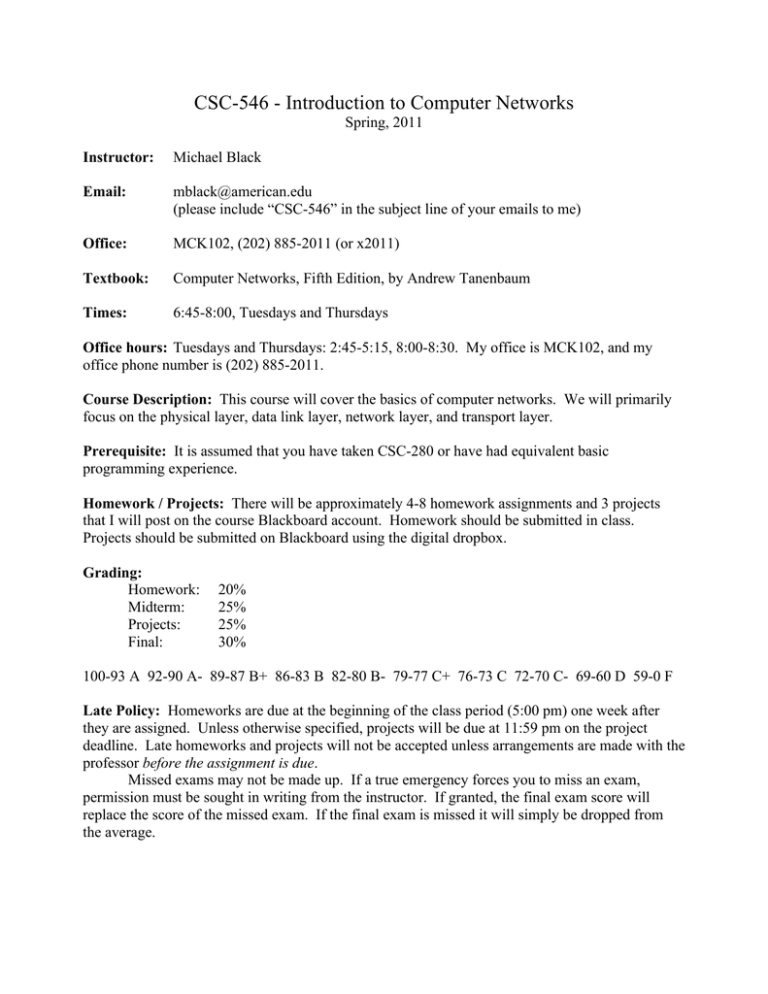
CSC-546 - Introduction to Computer Networks Spring, 2011 Instructor: Michael Black Email: mblack@american.edu (please include “CSC-546” in the subject line of your emails to me) Office: MCK102, (202) 885-2011 (or x2011) Textbook: Computer Networks, Fifth Edition, by Andrew Tanenbaum Times: 6:45-8:00, Tuesdays and Thursdays Office hours: Tuesdays and Thursdays: 2:45-5:15, 8:00-8:30. My office is MCK102, and my office phone number is (202) 885-2011. Course Description: This course will cover the basics of computer networks. We will primarily focus on the physical layer, data link layer, network layer, and transport layer. Prerequisite: It is assumed that you have taken CSC-280 or have had equivalent basic programming experience. Homework / Projects: There will be approximately 4-8 homework assignments and 3 projects that I will post on the course Blackboard account. Homework should be submitted in class. Projects should be submitted on Blackboard using the digital dropbox. Grading: Homework: Midterm: Projects: Final: 20% 25% 25% 30% 100-93 A 92-90 A- 89-87 B+ 86-83 B 82-80 B- 79-77 C+ 76-73 C 72-70 C- 69-60 D 59-0 F Late Policy: Homeworks are due at the beginning of the class period (5:00 pm) one week after they are assigned. Unless otherwise specified, projects will be due at 11:59 pm on the project deadline. Late homeworks and projects will not be accepted unless arrangements are made with the professor before the assignment is due. Missed exams may not be made up. If a true emergency forces you to miss an exam, permission must be sought in writing from the instructor. If granted, the final exam score will replace the score of the missed exam. If the final exam is missed it will simply be dropped from the average. Academic Integrity: Plagiarism and academic misconduct are defined in the University’s Academic Integrity Code. You should be familiar with what constitutes academic dishonesty. In particular, you should observe the following rules: • • • • Collaboration on homework, projects, and exams is strictly forbidden unless stated otherwise in the assignment. Any information taken from the internet, books, or anybody else for use on your assignments must be cited in your submission. You are permitted to discuss your work with other students at the conceptual level only. Your code must be entirely your own. You are not permitted to share code or use code obtained from the internet in your work. Unless otherwise stated, all exams will be closed-book, closed-notes. Instances of plagiarism may be reported and could result in disciplinary action. Feedback: I am eager to receive suggestions on how I can improve this course. If you have any comments, please feel free to tell me, either in person, by email, or anonymously in my mailbox. Approximate Course Outline (subject to modifications) Week 1 2 3 4 5 6 7 8 8 9 10 11 12 13 14 Subject History of networks, abstraction layers (OSI) Physical layer, bandwidth, media, multiplexing, switching Data link layer, framing, error handling Stop and wait, sliding window protocols MAC sublayer, ALOHA, CSMA Collision-free protocols, MACA, ethernet, switching Network layer, static routing, dynamic routing Congestion control, QoS, topologies, deadlock Midterm Exam IP addressing, transport layer, sockets Connection establishment, release, buffering, crashes UDP, RPCs, TCP Clock sychronization, distributed transactions Application layer, DNS, Email, The Web Security Final Exam Readings 1-82 89-105, 125-179 193-215 215-250 257-300 300-320, 332-350 355-392 392-436 436-485, 495-512 512-541 541-582 --611-697 763-871
